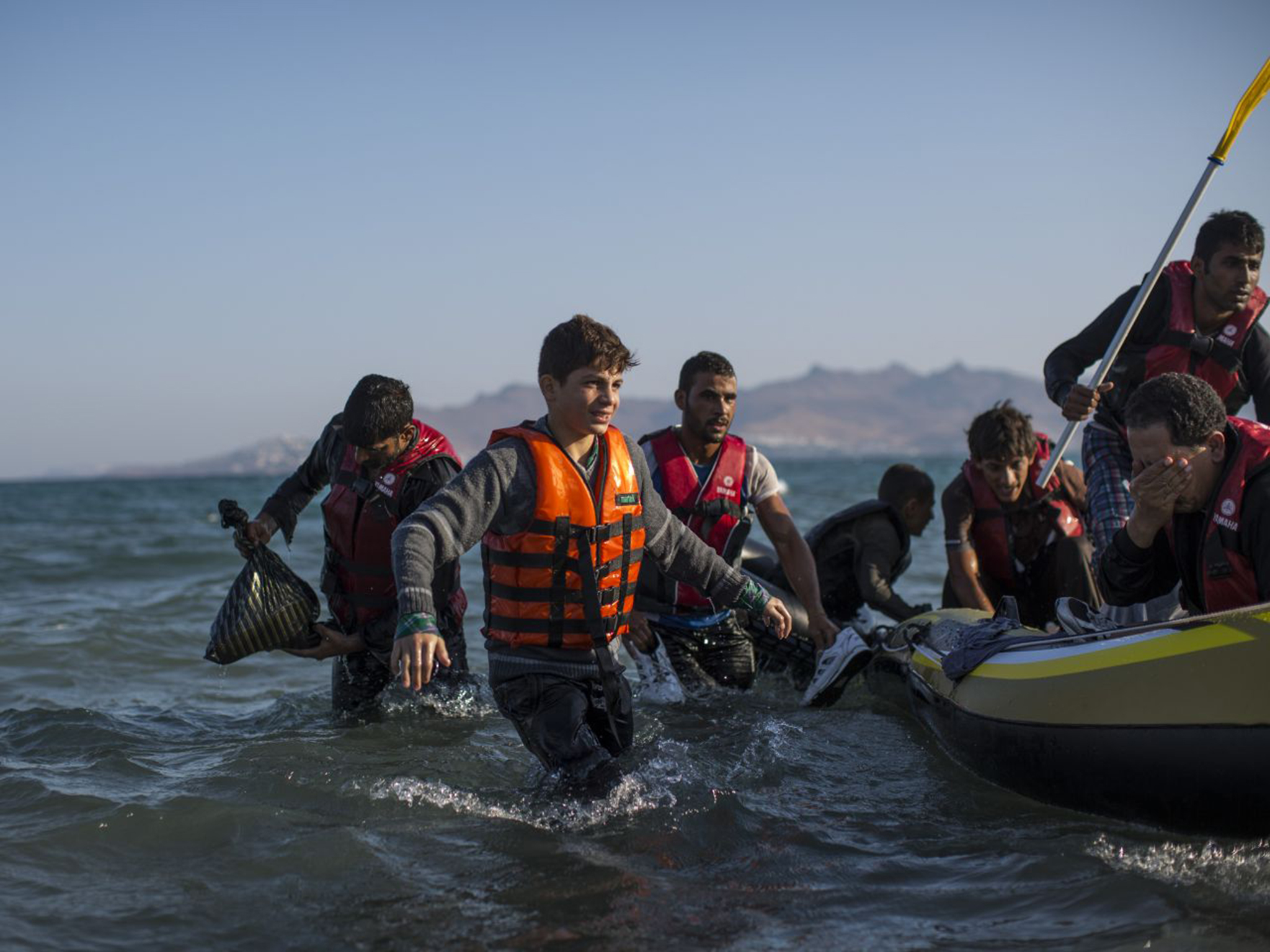By: Emily Kopp
The temperature may be pushing 70 degrees in Athens, but in tent cities in northern Iraq and along the southeast border of Turkey, winter has descended with full force.
What’s more, in what many have termed the worst storms Lebanon has seen in twenty years, dwellers are coping with freezing flood waters inundating their fragile makeshift homes.
Over the past year and a half, Assad’s crackdown has displaced 600,000 people, approximately ten times the number of the conflict’s casualties. Refugees have funneled into neighboring countries at an astonishing rate, seeking asylum from airstrikes and indiscriminate shooting by government troops. Increasingly soldiers have used sexual assault as a weapon, most with impunity because of the cover granted by the chaos of the country’s conditions.
The International Rescue Commission tacks on another 200,000 missing Syrians to that figure, and classifies 4 million people, about one fifth of the country, as in desperate need of aid. In other words, the out-migration to refugee camps cannot be expected to taper out anytime soon; indeed, the UN estimates the number of Syrian expatriates seeking shelter will top one million by June. The coming months will likely exacerbate the deplorable conditions of the camps, as more people vie for limited space and resources, while the patience of receiving countries becomes more and more taxed.
As the shantytowns swell with desperate inhabitants, international aid organizations and altruistic countries struggle to provide supplies.
Journalists on the ground describe the refugees as unprepared for the biting cold. Despite mass efforts by UNICEF to distribute blankets, CNN reports a lack of more basic supplies, like winter clothing and shoes.
With the resources and political wherewithal of the surrounding region exhausted, averting a crisis in Syria will require stemming the tide of emigration. Accomplishing this goal demands greater resettlement options; currently, only spouses, children, or parents of US citizens can apply for placement. The possibility of a no-fly zone sanctioned by the Arab League should be seriously explored, even if the feckless UN Security Council does not play a role.
But the politics of refugees are tricky and delicate.
World Policy Blog speculates that Assad may view the exodus in favorable terms as upping the cost of full-throated support for the opposition. Unconditionally backing the rebels might put Turkey or Lebanon on the line to accept a greater share of displaced persons than they can afford– in terms both of finances and political capital.
Furthermore, as with most crises involving displaced persons, ethnic tension complicates the provision of aid. Rather than risk inflaming conflict, Israel will simply and quite coldly cordon off its Syrian border with a miles-long fence. Iraq views the surge of Syrian Kurds to Kurdistan warily, as it could embolden the region to further alienate itself from the central government. Some fear the sectarian nature of the fighting in Syria could reignite barely-buried Shiite-Sunni resentment.
Despite the problem’s complexity, its severity demands a bolder approach by the United States. If the status quo is permitted to persist through the winter, the Syrian crisis threatens to become a smirch on American history as dark as its inaction in Rwanda.
The humanitarian crisis along the border of Syria has become a picture of the toll civilians endure when caught in the crosshairs of a ruthless dictator, desperate and unaccountable freedom fighters, and lumbering or ambivalent superpowers.
Refugees undoubtedly pose a considerable challenge to the countries that receive them, both logistically and politically, but easing the suffering in Syria is, quite simply, a moral obligation.

